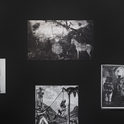The BBC is ending 2005 on a roll: Bleak House, Rome and four plays which "rediscover Shakespeare through modern interpretations." This is what they call "event television."
These three projects are hugely ambitious. On paper, they are exactly what the BBC should be for. It is impossible to imagine ITV or Channel 4 mounting anything comparable. The BBC has a new spring in its step, a new appetite for thinking big. Having ditched Lorraine Hennessey, Greg Dyke and Jane Root, it looks smarter and more interesting. It has also seen off its terrestrial rivals. According to Barb's viewing figures for October, BBC1 was ahead of ITV; and BBC2, since the end of the Ashes, ahead of Channel 4 again.
Both Bleak House and Rome opened with 6.6m viewers, an almost 30 per cent audience share. It looked like an impressive way to end a year that also included Jerry Springer: The Opera, the successful return of Doctor Who, the showing of Heimat and Martin Scorsese's Bob Dylan documentary, No Direction Home.
Dickens, Julius Caesar and Shakespeare look like 24-carat public service broadcasting. The problem, of course, is that they're not, for two reasons. First, they verge from the gimmicky (updated Shakespeare and Dickens as soap opera) to pornographic trash (Rome). The second problem is more interesting. Dickens, Rome and Shakespeare, despite the good intentions, hardly ever work on television. What you tend to get are worthy, stagey programmes. Broccoli television—it's supposed to be good for you. So you watch it, and it turns out to have been steamed for ten hours and to have no flavour at all. The BBC has produced countless adaptations of Dickens novels, many for the old Sunday teatime classics slot. But they were never as good as the films—Lean's Great Expectations or Oliver Twist. There have been exceptions: Arthur Hopcraft's Hard Times (Granada, 1977), the BBC's Our Mutual Friend (1976) and the RSC's acclaimed Nicholas Nickleby (Channel 4, 1982). I, Claudius was the only time the BBC succeeded with a Roman drama, and that was almost 30 years ago and now looks desperately dated, despite the outstanding cast. There are two ways that Shakespeare has worked on television. The most reliable has been to film an acclaimed stage production: the RSC's As You Like It with Vanessa Redgrave (BBC, 1963); the RSC's The Wars of the Roses (BBC, 1965); Ian McKellen's Richard II at the 1969 Edinburgh festival (BBC, 1970); McKellen and Dench in Trevor Nunn's RSC Macbeth (Thames, 1979). The other has been to find a writer or director who avoids worthiness and tries something new: John Bowen's Heil Caesar (BBC, 1974) or Jonathan Miller's The Taming of the Shrew (1980) with John Cleese as a Puritan Petruchio. But these are the exceptions rather than the norm.
The BBC gravitates towards the classics like a wasp to a jamjar. But this time, word went around that it was time for a rethink. Hence Dickens as soap opera; Shakespeare with Billie Piper as a weathergirl; Rome with sex, violence and bull's blood. This doesn't work either. It makes Dickens and Shakespeare look silly and television look trivial.
What television does best is Tutti Frutti, not Dickens; Cracker, not Shakespeare. It is best at inventing something new, something that works on a small screen. Shakespeare's world is too big. There are too many speeches. The words are too hard. You can't get around it by cutting out the long words or turning characters into stock media figures. (How come Shakespeare could imagine people as merchants, princes and soldiers and television executives can only think of people as television characters—weatherwomen or newsreaders?) What television does best is new genres, new hybrids and new characters with different kinds of stories. It is slower, quieter: instead of long monologues, you get short dialogue, or hardly any at all. That is why the best television adaptations of books tend to use second-rate source material: The Forsyte Saga or The Camomile Lawn, John Le Carré or Paul Scott. There is something untranslatable about the classics. Think of Anthony Hopkins in the BBC War and Peace, or try to imagine a BBC Moby Dick. It just can't be done.
What it needs is extraordinary individual talent: a McKellen, Miller or Hopcraft. Too much of today's television is made not by individuals trying to do something new with small budgets, but by huge committees of executives, emailing at all hours across the Atlantic, trying to second guess the audience. How many full-frontal nude actresses does it take to get 6.6m viewers? How much violence, how many clichés ("Brutus, me old cock!" "Mark Antony, how nice!")? What they hope is that we will be fooled by the names (Andrew Davies, me old cock! Lindsay Duncan, how nice!) or by the numbers (Rome apparently cost £58m so far).
The problem is that you can't buy great television, even for £58m. What you need is someone with a passion—Martin Scorsese, crazy about the music scene in Greenwich Village in the late 1950s; Edgar Reitz, wanting to tell the story of a small German town in the 20th century; or someone who can picture a killing machine that rolls around saying "exterminate" in a funny voice. That is classic television.











